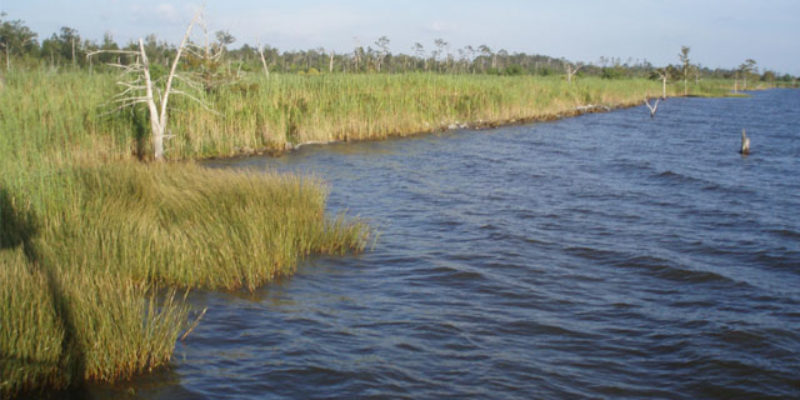OK I admit it, I am really conflicted. What is causing me so much angst will cause many people to get mad simply because it flies in the face of what everyone wants to believe.
For decades we have all been focused upon the importance of restoring our coast. I too have been a believer, but in my short lifetime I have witnessed the coastal marshes literally disappear before my eyes. Are we too late? Add to that the leading scientists in the world are publishing more and more reports that are leading me to think about perhaps changing my support to a different approach.
The state’s long term goal to save the coast has been to create a series of restoration projects and to fund them with dollars that, to a great extent, will come from Federal offshore oil royalties. These royalties would amount to billions of dollars over many years and, based upon this funding stream, a $50 to $100 billion long term strategy always looked feasible (of course it now appears that President Obama has decided to divert these funds to other uses and we may never see them anyway, but that is another issue!).
The expected outcome of such massive expenditures was to be the replacement of sustainable wetlands along the coast; wetlands that would protect the populated areas from storms while maintaining a strong habitat for fish and other wildlife. What could be wrong with that?
Well nothing, except that the whole concept may be based upon a fundamental assumption that isn’t valid any longer. The current plans are that we restore the wetlands to their historical elevation, an elevation which has existed for the several thousand years that it took the Mississippi River to build the coast in the first place. This target elevation, including some allowance for sea level rise, is just above current sea level and is expected to suffice to achieve the goals that have been established.
The only problem with this strategy is that scientific report after scientific report have been published (one just last week) that support a contrarian expectation; that in the relatively near term sea level will rise substantially above what has been the basis of our expectation. These reports estimate that before the end of this century, sea level will be at an elevation such that the newly restored wetlands would be submerged under 4 to 6 feet of the Gulf of Mexico. Based upon funding constraints it may even be a possibility that we would not be able to restore them fast enough to keep up with sea level rise.
So now the heresy in my thinking; if we spend those billions of dollars rebuilding a coast that will be under water anyway what have we accomplished? Perhaps we need to consider a different approach.
Many years ago, after devastating storms from the North Atlantic swamped its coast, the Netherlands created an amazing protective system to keep their country safe from sea water intrusion. Unlike Louisiana, the Netherlands has no wetlands to break down the sea’s might, so the design of their defenses is only their manmade barriers against the sea. The entirety of the Netherlands is an engineering marvel; a dry one at that. Unlike the Netherlands, if after restoration our wetlands go under water anyway, then we won’t have wetlands or any barriers to keep out the Gulf.
My thinking is that we need a new conversation about sea level rise and its impact upon our strategies. We need it now and we need it to be devoid of emotion, politics, and political correctness. Our very survival as a region may well be a race against the clock and it will absolutely depend upon the decisions that we make now.
If the scientific community is correct and we are faced with 4 to 6 feet of water over our planned restored wetlands, then we need to rethink our long term goals. Perhaps we need to be the Netherlands of the south and we need to build barriers to protect our populated areas first, before we spend irreplaceable funds on coastal restoration that could be submerged anyway.
I hope that I am wrong; I hope that the scientists are wrong. But there is one thing I do know; if we are fortunate enough to secure those billions of dollars, it will be only a onetime event. There will be no second chance if we bet wrong and spend those billions on projects that in the end do no good. If we make the wrong decision the result could be that later in this century south Louisiana would not exist as we know it.
Yes, I am conflicted. I want very badly to believe that we are on a sustainable path with our current strategy. And yet, how many times do we have to be told by the best minds in the world that we can expect major sea level rise before we give it serious consideration?
Advertisement
Advertisement

